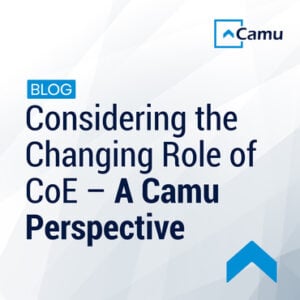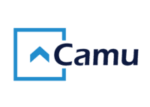
Emerging Student Profiles in Higher Education
Gone are the days when a university classroom donned the face of an average 18-year-old, urban, Indian student. Today, a teacher can expect to find a mixed group of learners, from diverse backgrounds and contexts, awaiting instruction. These student profiles have their own set of needs, ambitions and dreams. And higher education institutions must understand what they can do to align their strategies with students’ expectations, as well as the ever-changing dynamics of future industry roles. Simply put, they must be willing and able to revisit their leadership mindset and pedagogical approach, to efficiently on-board and guide the new-age student. Just as the classroom environment is transitioning from physical to virtual, the classroom dynamic is also changing from homogeneous to heterogeneous!
Broadly speaking, there are 3 types of student profiles to consider. Let’s look at each one.
- Rural Students – According to National Education Policy 2020, India’s gross enrolment ratio in higher education is expected to rise to 50% by 2035. Financial aid and open/distance learning opportunities have empowered rural students to aspire for a better tomorrow. As non-urban students fill up more seats, faculty will need to gear up to meet their unique requirements, from numeracy, to literacy, and English language skills.
- International Students – In 2018, the government of India announced the Study in India programme, and its endeavour to increase the country’s international student population from 47,500 to 200,000. As the classroom becomes more culturally diverse, faculty members must provide academic support as well as pastoral care to help acclimatise each student.
- Corporate Students – 1- year MBA programmes are growing at a rapid pace, with working professionals diving back into the academic space to upskill and grow their careers. As the learning space becomes more mature and experienced, faculty will have to adapt their teaching methods to incorporate more practical, dialogue based, assignment driven, activities.
It is important for higher education institutions to account for cultural, demographic and generational differences in the classroom. A culture of learning, unlearning and relearning must be fostered. How? Through a nimble, agile and flexible academic model. One that allows students to cut across learning disciplines, and juggle theory with real-life work.
Achieving Student Centricity
Gauging different personalities, experience levels, and learning curves can be more than just a little challenging. But with the right vision and strategy, institutions can create an ecosystem that is inclusive and equitable. Here are 3 disciplines to ponder over.
- Empathetic Leadership – Institutions must lead with empathy, given the diaspora of student profiles emerging. Emotional intelligence should be applied wherever possible, along with sensitivity, patience and understanding. Interpersonal skills should be ingrained into the educational model.
- Growth Mindset – Institutions must reward hard work and participation over intelligence. It is through the making of mistakes and the taking of risks, that true learning occurs. Acknowledging various perspectives, opinions, beliefs and thoughts is an integral part of growing.
- Flexible Practices – Institutions must experiment with different modules of learning. Experiential learning, interdisciplinary learning, and life-long learning are some of the popular methods that universities and colleges have already begun to implement.
As you can see, student profiles are changing. And along with it, methods of learning. Education equity means that each student receives what he/she needs to develop his/her full academic and social potential.
How EdTech Platforms Help Institutions Cater to All Student Profiles
Today’s college student body forms a vibrant tapestry of diverse backgrounds and aspirations, each student bringing a unique perspective and set of goals to the classroom. EdTech platforms, such as Camu, are stepping up to the plate, arming institutions with the tools to empower them all.
- Bridging the Gap with Remote Learning: A rural student in India shouldn’t miss out on a top-notch education simply due to their location. Campus Management Solutions and Educational ERP systems enable institutions to offer high-quality remote learning programs. Virtual classrooms are abuzz with engaged students, regardless of their geographical location.
- Fostering Global Connections: Open and Distance Learning (ODL) programs facilitated by Camu allow students to collaborate with a broader spectrum of learners. As classrooms become more culturally diverse, Students are exposed to scenarios where they can envision themselves as essential members of a global community.
- Enhancing Teacher-Student Dynamics: EdTech platforms like Camu enable students to tap into a global network of educators and industry experts. Whether signing up for a virtual exchange program or attending a webinar hosted by a renowned professor from another country, it can all be done on the platform. The possibilities are endless, breaking down the traditional teacher-student dynamic and putting the power of learning directly in the students’ hands.
- Facilitating Multidisciplinary Curriculums: Camu’s Integrated Student Information System (SIS) and Learning Management System (LMS) help universities embrace modern learning models like Outcome-Based Education (OBE) and Choice-Based Credit System (CBCS). These models allow students to explore their interests and build personalized learning paths that align with their goals, eliminating rigid one-size-fits-all curriculums.
EdTech platforms like Camu indeed play a pivotal role in catering to the diverse needs of all student profiles. By leveraging technology, institutions can create an inclusive and equitable learning environment that meets the unique needs of every student.







